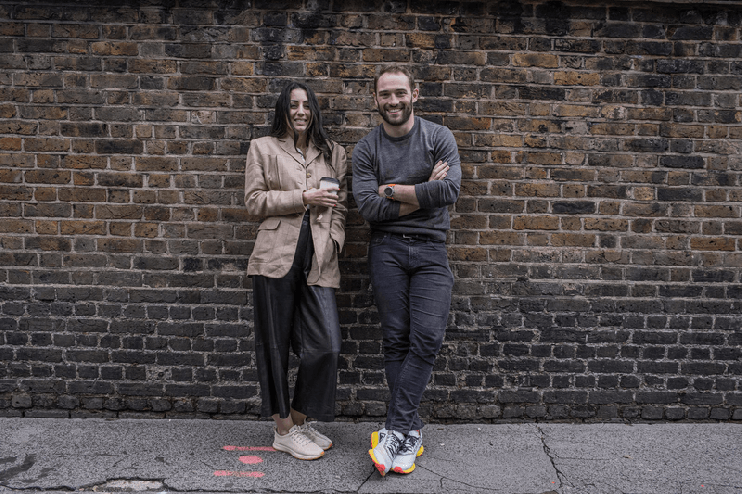Corona Impact Series: How a creative workspace was dragged into a work-from-home experiment

In this series, City A.M. looks at the financial and economic impact of the ongoing pandemic on a range of small and medium-sized businesses across London. This week: How a workspace provider with spaces across the UK, including in Soho and Westminster, gradually changed the work mindset of its office clients.
No one could have predicted 2020, but one universal truth is that the perception of a normal working routine has changed forever.
Working from home may not be an option for everyone, for many reasons such as mental well-being and collaboration, but neither is the traditional office format. Where you work and how you work are now hot topics for business execs as they battle to retain talent and keep a remote-first culture intact.
“This entire year has made us think bigger about what the industry really needs, and the answer is not simply more desks.” said Gabriela Hersham, co-founder and CEO of Huckletree, a workspace provider with four sites across London, as well as in Manchester and Dublin.
While most workers have proven they can work remotely, anyone who now joins a workspace is mostly looking for something else to break up home-schooling and Zoom calls, Hersham told City A.M.
Keeping the lights on
When the pandemic hit, in March of last year, the first thing Hersham did was to simply listen to her clients in Huckletree’s office sites in Soho, Westminster, White City, Manchester and Dublin.
Her clientele comes from a range of sectors, from GovTech to venture capital, and includes the likes of MuscleFood, Crowdcube, Starling Bank and Depop.
“They wanted to speed up their learning, they needed advice on things like fundraising and innovation in a pandemic, and they saw the value in staying connected with others who were in the same boat. People saw us as a place to help them accelerate, not just a place to clock in and out,” she explained.
Hersham added that the first phase of the pandemic was “the fire” that helped her business pivot quickly and her team launched an education offering mid-lockdown.
“If companies are going to re-enter the office again, they’ll be far more selective about the environment, not just the location,” she noted.
“Aesthetics and prime real estate won’t cut it, it needs to outweigh the convenience of working from home and the cost. Spaces like ours can fill the gap for corporate innovation in a cost-effective way,” Hersham said.
Chaotic first weeks
Since March of last year, dealing with national and local lockdowns, and changing restrictions in three different cities – London, Manchester and Dublin – has become the ‘new normal’ for Hersham.
Having to navigate multiple challenges and pivot quickly in a sector where they have seen peers, such as TechHub, having to close their doors in London, Huckletree managed to survive.
“Those early days were chaotic and we did not get everything right,” said Hersham’s colleague Andrew Lynch, co-founder and COO of Huckletree.
But speed was on their side.
“We moved fast at cutting costs at group and location level, invested upfront in Covid safety measures, and we made the decision to keep our spaces open from day one as we believed that people would need our services, and that fostering collaboration would be important for the innovation sector to bounce back,” Lynch explained.
“We were lucky that our members thought that too”, he laughed, pointing out that one in five churned members re-joined during lockdown, citing ‘longing for community’ as one of the main reasons to come back.
Ultra-flexible market
Even though Lynch singled out a recent JLL survey, which found that three in four workers hope to return to an office at some point in the future, he is realistic.
“A version of lockdown is likely to be a permanent fixture of life, with landlords and buildings needing to rethink operations for a flexible working world, and not all of those options need to be in city centres,” Lynch said, adding that he wants to take his company to new suburban and commuter hubs later this year.
What certainly helped Huckletree is a workable relationship with most of their landlords.
“For the most part, our landlords have acknowledged it’s been a challenging time and have been accommodating, which has allowed us to pass on savings,” Lynch noted.
But he added quickly that this is just the beginning for disruption in the property market. The workspace provider-turned-advisor is now working with larger firms and innovation teams on building a ‘lite’, scaled down HQ, giving corporates the flexibility that the traditional fixed lease market is unable to provide.
The real story of 2020
With the exception of the pandemic itself, working from home has been one of the biggest stories of 2020, said Hersham.
“But what is apparent, is that the office isn’t dead, it will just look different.”
As a result, work cultures are changing, restructures are taking place and business owners are more conscious of property-related overheads than ever.
“Whether you run an SME or a bigger corporate, you will need to be agile in your approach to property costs, and look at making these costs as flexible as possible, which is where innovative co-working spaces can provide a solution,” she said.
Forecasting what the year has in store, Hersham is convinced “the hybrid model is here to stay”.
“We’ve already seen a surge in enquiries from companies who want the option to work from home and be part of an ecosystem like ours 2-4 days a week, using us as a platform for growth and community,” she said, adding that they plan to invest in skill-sharing, networking and culture-building opportunities for the innovation sector.
“2020 was a game-changer for working from home, but 2021 will be about bringing both remote and in-person work together, and we want to be at the centre of it,” concluded Hersham.
